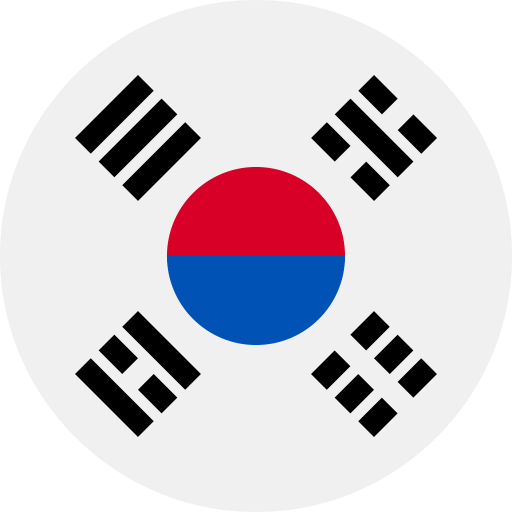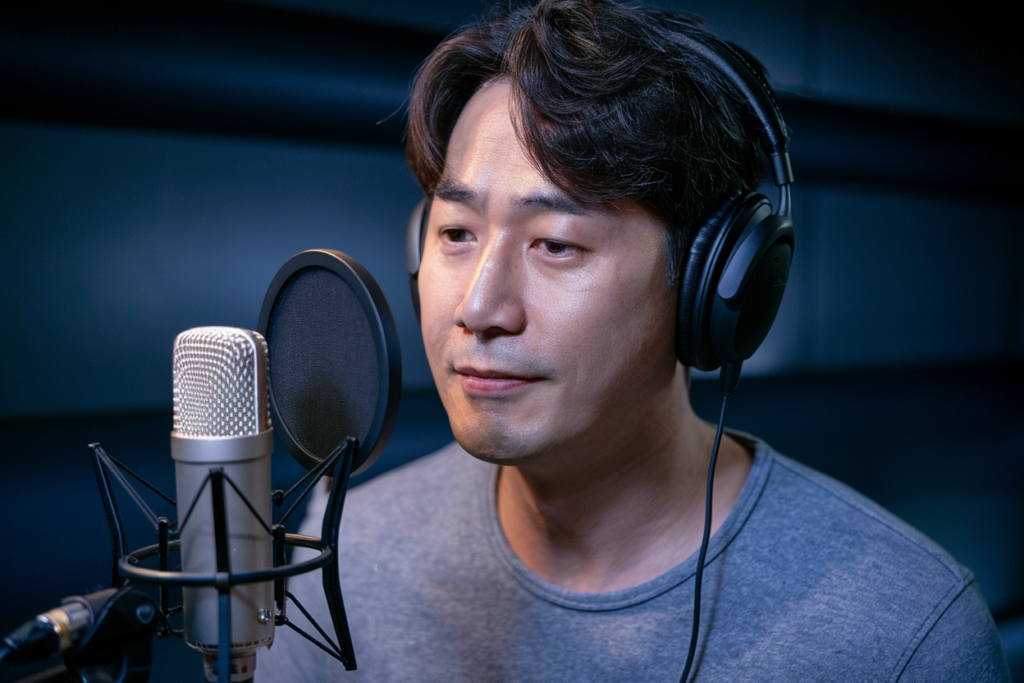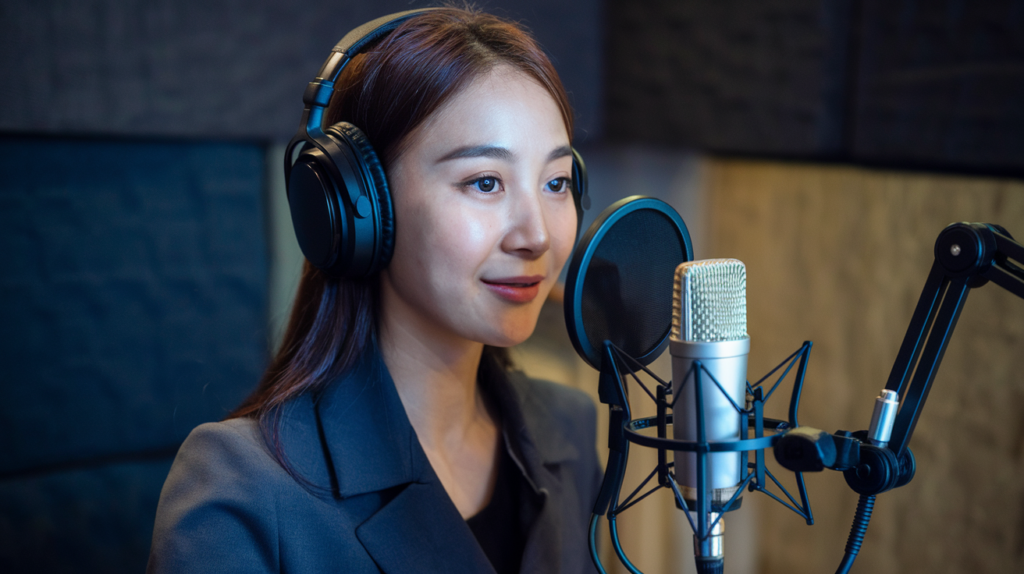Key Takeaways
- Distinct Dialects: The Jeju accent differs significantly from mainland Korean, showcasing unique rhythm, pronunciation, and vocabulary influenced by the island’s geographical isolation and cultural interactions.
- Linguistic Features: Key characteristics of the Jeju accent include elongated vowel sounds, localized lexicon, and a melodic quality that enhances communication and captivates listeners.
- Mainland Variations: Mainland Korean encompasses several dialects (e.g., Gyeongsang and Jeolla), each with its own phonetic traits and cultural expressions that contribute to the richness of the language.
- Cultural Significance: Both accents reflect their respective regions’ histories and identities; recognizing these nuances fosters deeper cultural appreciation for learners and voice artists alike.
- Communication Enhancement: Understanding regional accents is crucial for effective communication in various contexts, especially for those pursuing voice talent opportunities or engaging with diverse audiences.
Ever wondered why the Jeju accent sounds so different from mainland Korean? You’re not alone. Many people find themselves puzzled by the distinct dialects that can make communication a bit challenging. The Jeju accent carries its own unique rhythm and vocabulary, making it a fascinating subject for anyone interested in language or culture.
Overview of Korean Accents
Korean accents vary significantly across the country, reflecting regional differences in pronunciation, intonation, and vocabulary. Understanding these distinctions enriches your grasp of the language and culture.
The Jeju accent stands out with its unique rhythm and specific terms that locals frequently use. It often confuses those familiar only with standard mainland Korean. The melodic quality of Jeju speech creates a distinctive auditory experience, making it captivating for linguists and casual listeners alike.
Mainland Korean features several prominent dialects as well, each displaying characteristics tied to their respective regions. For example, the Gyeongsang dialect is known for its sharp tones, while the Jeolla dialect leans towards a softer articulation. These variations contribute to the rich tapestry of spoken Korean.
Recognizing these accents fosters better communication and deeper cultural appreciation. Whether you’re learning Korean or exploring voice talent options in different dialects, being aware of regional nuances enhances your overall understanding of this beautiful language.
Understanding the Jeju Accent
The Jeju accent presents a fascinating study in linguistic diversity within Korea. It features distinct characteristics that make it unique compared to mainland Korean dialects.
Historical Background
Jeju Island’s isolation has contributed significantly to its accent’s evolution. Historically, its inhabitants developed a distinct form of communication, shaped by geographical separation and cultural influences from maritime interactions. The island served as a trade hub, attracting merchants and travelers who brought various linguistic elements. Over time, these factors forged an accent that diverges greatly from mainland counterparts.
Unique Linguistic Features
The Jeju accent showcases several unique traits that set it apart:
- Pronunciation: Vowel sounds often differ from those in mainland dialects. For instance, certain vowels may sound more elongated or pronounced.
- Vocabulary: The local lexicon includes words not commonly found elsewhere in Korea. Some terms derive from Old Korean or are specific to Jeju’s culture and environment.
- Rhythm and Intonation: Sentences tend to carry a melodic quality. This rhythm captivates listeners and creates an engaging auditory experience.
Understanding these features can enhance communication with native speakers and enrich your appreciation for the complexities of regional accents in Korea.
Exploring the nuances of the Jeju accent opens doors for language learners and voice artists alike. Recognizing the charm of this distinctive speech can deepen cultural insights while offering opportunities for effective voice talent expression across diverse contexts.
The Mainland Korean Accent
The mainland Korean accent showcases a rich tapestry of regional variations and characteristics. Understanding these aspects can greatly enhance your appreciation for the language, especially if you’re considering voice talent opportunities.
Regional Variations
Mainland Korean features several distinct dialects, each contributing unique sounds and expressions. For instance, the Gyeongsang dialect is known for its sharp tones and rising intonation, while the Jeolla dialect emphasizes softer pronunciations and melodic speech patterns. These differences can influence how native speakers perceive various accents. Recognizing these nuances not only aids in communication but also helps you connect with audiences on a deeper level if you’re exploring voiceover work or other vocal expressions.
Common Characteristics
Common traits across mainland accents include specific vowel pronunciations and intonation patterns that vary by region. Typically, vowel sounds may shift depending on local influences, leading to noticeable differences in everyday conversation. Additionally, some regions employ particular vocabulary sets that reflect cultural context and history. As a voice artist or actor, being familiar with these characteristics allows you to adapt your delivery style effectively for diverse projects—whether narrating an educational video or performing in character-driven scripts.
Understanding the intricacies of the mainland Korean accent enriches your ability to engage with various audiences authentically while enhancing your skills as a voice over talent.
Comparison: Jeju Accent vs Mainland Korean
The Jeju accent and mainland Korean showcase fascinating contrasts that reflect cultural and linguistic diversity. Understanding these differences can enhance your appreciation of regional accents, whether you’re exploring voice talent opportunities or simply interested in language.
Phonetic Differences
Phonetic aspects between the Jeju accent and mainland Korean stand out significantly. The Jeju accent features unique vowel pronunciations that differ from standard mainland pronunciation. For instance, vowels may sound longer or more melodic, creating a distinct rhythm. This melodic quality can captivate listeners, making it appealing for various voiceover projects where tone plays a crucial role.
Additionally, consonants in the Jeju accent often undergo different articulatory processes than those in mainland dialects. You might notice variations in how certain sounds are stressed or softened depending on the context. These phonetic traits add layers of richness to the spoken language, offering an engaging experience for voice artists aiming to connect with diverse audiences.
Vocabulary Distinctions
Vocabulary distinctions also play a key role in differentiating the Jeju accent from mainland Korean. The Jeju dialect incorporates terms rooted in Old Korean and words specific to local culture and geography. For example, you might hear unique expressions related to farming practices or traditional dishes found only on the island. This localized vocabulary not only enriches conversations but also provides depth for anyone interested in capturing authentic regional nuances as a voice actor.
On the other hand, mainland Korean boasts its own set of regional vocabularies influenced by historical trade routes and cultural exchanges among provinces. Each area has developed terminology that reflects its lifestyle and values, impacting how messages resonate when delivered through voiceovers or performances.
Recognizing these phonetic differences and vocabulary distinctions enhances communication efforts for anyone involved in voiceover talent work—whether creating character-driven narratives or conveying information clearly across diverse audience segments. Embracing this linguistic variety opens doors to richer storytelling experiences that engage listeners effectively.
Cultural Significance
Understanding the cultural significance of the Jeju accent enriches communication and appreciation for Korean dialects. The Jeju accent reflects its unique history, shaped by the island’s geographical isolation and historical trade interactions. This blend of influences creates a distinct identity that resonates with both locals and those from mainland Korea.
The melodic quality of the Jeju accent stands out, making it particularly appealing to voice artists. Its rhythmic intonation adds a layer of expressiveness, which can enhance storytelling in various voiceover projects. When you listen to native speakers, you’ll notice how the accent’s nuances create an emotional connection that captures attention.
Moreover, localized vocabulary often includes terms specific to Jeju’s culture. This unique lexicon not only preserves regional heritage but also provides depth for voice actors seeking authenticity in their performances. Utilizing these words allows voice talent to convey genuine emotion and context, which is vital for engaging audiences effectively.
Contrastingly, mainland Korean accents offer their own cultural richness through diverse pronunciations and vocabularies influenced by local histories. Understanding these differences proves essential for anyone involved in voiceovers or related fields. By recognizing and appreciating these accents, you can elevate your work as a voice over artist.
Embracing the complexities of different Korean dialects enhances your ability to connect with listeners on multiple levels. Whether you’re working on commercial projects or narrative storytelling, mastering these accents can set you apart from other voice over talents in an increasingly competitive market.
Conclusion
Exploring the differences between the Jeju accent and mainland Korean opens up a fascinating view into Korea’s linguistic landscape. You gain valuable insights into how geography, history, and culture shape language. The melodic quality of the Jeju accent not only reflects its unique heritage but also enriches communication for those engaging with native speakers.
Whether you’re a language learner or a voiceover professional, understanding these accents enhances your ability to connect authentically with audiences. Embracing the nuances of regional dialects fosters appreciation for the rich tapestry of Korean culture. By mastering these distinct features, you can elevate your storytelling skills and deepen your engagement in any conversation or project that involves this vibrant language.
Frequently Asked Questions
What is the Jeju accent?
The Jeju accent is a unique dialect of Korean spoken on Jeju Island, characterized by distinct rhythm, vocabulary, and melodic intonation. It differs significantly from mainland Korean accents, making it an intriguing subject for linguists and language enthusiasts.
How does the Jeju accent differ from mainland Korean?
The Jeju accent features unique vowel pronunciations and local vocabulary rooted in Old Korean. Its rhythmic quality sets it apart from mainland dialects like Gyeongsang or Jeolla, which have their own phonetic characteristics and regional vocabularies.
Why is the Jeju accent important for voice actors?
Understanding the Jeju accent allows voice actors to connect more deeply with audiences by using localized vocabulary and expressive intonation. This enhances storytelling by preserving cultural richness and conveying genuine emotion.
What influences the evolution of the Jeju accent?
The isolation of Jeju Island and its historical role as a trade hub have shaped its linguistic development. These factors contributed to its unique phonetics and rich vocabulary that reflect both local culture and historical interactions.
Are there other notable Korean dialects besides the Jeju accent?
Yes, notable dialects include Gyeongsang with sharp tones and Jeolla with softer sounds. Each has distinct pronunciation, intonation patterns, and regional vocabularies that highlight Korea’s rich linguistic diversity.







